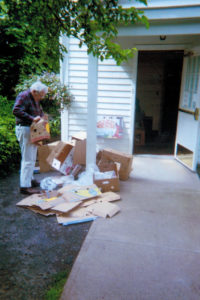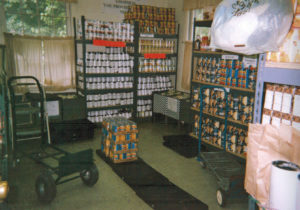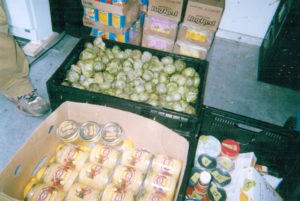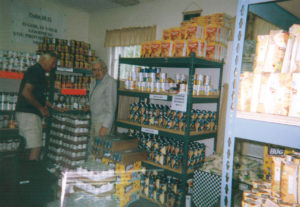No Fixed Address

“No Fixed Address” is dedicated to those in our country with no roof over their heads. See your neighbors, your friends, your relatives, in new ways as they describe their daily lives in their own words.
The people in this new book reveal themselves to be both brave and fearless as they go about their activities: work, laundry, children’s homework, appointments. Mostly they live like the rest of us. They just have no roof over their heads.
“No Fixed Address” is my newest book in the Unworthy Hungry series. It’s easy to read and understand. You won’t be bored, not even for a minute.
I hope you’ll order it today. Get an extra copy for a friend!
This book has an extra surprise. When you get a copy, you’ll be making a donation to a good cause. You’ll be fighting hunger and homelessness.
It doesn’t get much better than that!
Thank you for reading this article!
Please forward it to your preferred social media network.
Thurman Greco


Hungry People


When an economy tanks, hungry people find the food pantry. The tanked economy of 2008 has been referred to many times in the past few days on the news. References to past broken economies are made every day.
The situation is very different this time, but for the hungry people, the situation is the same.
In 2008, New York got with the program quickly, it seemed. The Hunger Prevention Nutrition Assistance Program people handed down guidelines mandating specific foods for the pantry room. Produce, whole-grain bread, eggs, dairy products appeared on the shelves. Crowds and an ever-lengthening hallway line became the norm.
In Woodstock, the pantry attracted several hundred hungry people to its basement room every pantry day. The line formed outside the door at 1:00 for the 3:00 opening, regardless of the weather. Hungry people who visited the pantry a week ago and took home groceries, would today be out of food and need more.
Today, in 2020, some pantries are closed. That puts even more pressure on the pantries that are open. Food pantry volunteers are not only serving more and more hungry people because of the layoffs of the pandemic. They are also serving people who shopped at the now-closed pantries.
When people live close to the edge, they have no reliable cushion. They’ve lived in a situation where they make choices every day: food or medicine, food or rent, food or gas. Now, when the coronavirus strikes, they have no either/or choices.
Food pantry volunteers take precautions. They take temperatures as volunteers enter the pantry. Volunteers wash hands repeatedly and adhere to the six-foot social distancing guidelines.
But the need for food is not imaginary.
Volunteers are realistic. They can’t kid themselves into believing nothing will happen to them because they feed hungry people. They know they’re taking chances. They also know they are doing a needed job. For many volunteers, it’s something they need to do.
There are no words for this feeling.

I have a small thank-you gift for you. All you have to do is email your name and mailing address to me at thurmangreco@gmail.com and I’ll send you, free of charge, with no strings attached, a small book about a food pantry I used to work in – “Miracles”.
Thank you for all you do…not only for volunteering in a food pantry but also for shopping at a food pantry. Your actions are courageous. Following your inner moral compass is also courageous.
Please refer this article to your preferred social media network.
Thurman Greco






